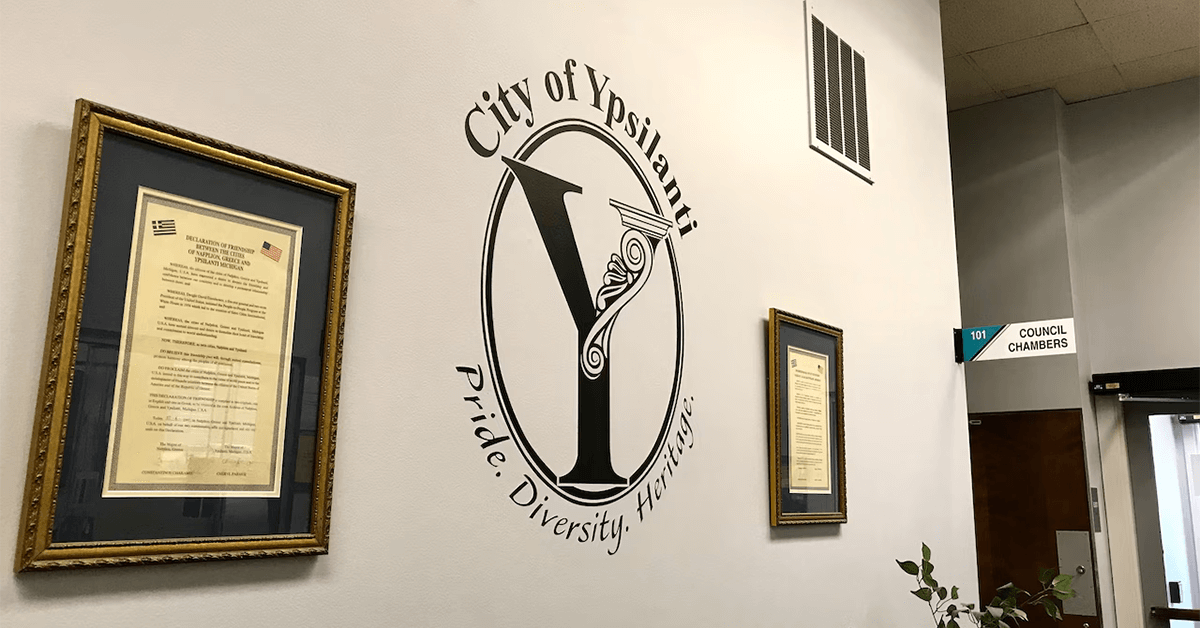A Canvas of Creativity: The 2024 Michigan Glass Project Festival

This June, the heart of Detroit will be alight with the vibrant energy of the Michigan Glass Project, a unique three-day festival that combines the talents of glass and visual artists with the rhythms of music to create an immersive experience for all ages. Scheduled from June 21st to June 23rd, 2024, at the iconic Russell Industrial Center, this event not only showcases the creative prowess of artists from across the country but also supports a heartfelt cause: the enrichment of art education for Detroit's youth.
A Glimpse into the Festival
At the Michigan Glass Project festival, attendees will have the rare opportunity to witness art being made live. Artists will be working on their pieces throughout the event, offering a behind-the-scenes look at the creative process that often remains hidden within studio walls. From the intricate work of glassblowing to the broad strokes of painters, the festival promises a kaleidoscope of artistic endeavors.
The culmination of this creative showcase is the auction on Sunday, where the pieces crafted during the festival are sold. The proceeds from these sales are dedicated to Art Road Nonprofit, a charity with the noble mission of bringing art classes back to schools in Detroit. Through this effort, the Michigan Glass Project not only celebrates art but also ensures its legacy by nurturing future generations of artists.
[youtube=YEu-WRQg6NM]
Event Essentials
- When: June 21st, 2024, 12:00 PM – June 23rd, 2024, 11:00 PM
- Where: Russell Industrial Center, 1600 Clay St, Detroit, MI 48211, USA
- Tickets: Available for both the entire weekend and single-day attendance. A Weekend Pass is priced at $75, offering access for all three days, while Daily Passes are available at $30 for those looking to attend specific days. Children 12 and under enjoy free admission, making it an event for the whole family.
Why Attend?
The Michigan Glass Project festival is more than just an event; it's a movement. By participating, attendees not only get to enjoy and possibly take home unique pieces of art but also contribute to a cause that impacts the community directly. The festival is a testament to the power of collective effort and the belief that art can and should be accessible to everyone, especially the younger members of our community who stand to benefit the most from exposure to the arts.
In addition to supporting a good cause, the festival offers a rich experience of culture and connection. It's a place where art lovers can meet the artists, learn about their processes, and witness the creation of beautiful works of art. With music filling the air and the shared excitement for creativity, the festival fosters a sense of community and belonging among all who attend.
Looking Ahead
As the festival prepares to open its doors to the public this June, it continues a tradition of giving back that has defined the Michigan Glass Project for over a decade. Through the festival and its proceeds, the organizers aim to continue supporting Art Road Nonprofit and ensuring that art remains a vital part of education in Detroit.
Join the Celebration
Mark your calendars for June 21-23, 2024, and be part of an unforgettable event that celebrates the transformative power of art. Whether you're an art aficionado, a lover of music, or simply someone who believes in the cause of education, the Michigan Glass Project festival promises an enriching experience for all.
Mint Cannabis Offers Free Solar Eclipse Glasses at Michigan Stores

In anticipation of the upcoming solar eclipse, Mint Cannabis has announced a special offer for its customers across Michigan. The cannabis retailer is providing complimentary solar eclipse glasses to patrons aged 21 and over at all of its six locations throughout the state. This offer is valid immediately and will continue through Monday, April 8. However, customers are advised to act quickly as the glasses will be distributed on a first-come, first-served basis and are available only while supplies last.
For residents in or near mid-Michigan, Mint Cannabis operates a store in Mt. Pleasant, located at 1707 S. Mission St., where the solar eclipse glasses can be obtained. In addition to the Mt. Pleasant location, Mint Cannabis has five other stores in Michigan situated in Monroe, Oxford, Portage, Kalamazoo, and Coldwater, all participating in this unique promotion.
This initiative by Mint Cannabis not only celebrates a significant astronomical event but also provides a safe way for their customers to enjoy the solar eclipse, underscoring the company's commitment to community engagement and safety.
Meds Cafe to Open New Cannabis Dispensary Near Ann Arbor's Hash Bash Hub

Ann Arbor, known for its vibrant Hash Bash celebrations, is set to welcome a new cannabis dispensary, Meds Cafe, in a location that's at the heart of the annual event. The city's Planning Commission approved a zoning permit on Tuesday, April 2nd, for Meds Cafe to establish its business in the former premises of Green Planet dispensary, located at 700 Tappan Street. This spot is notably adjacent to Monroe Street, a gathering hub for thousands of cannabis aficionados who partake in the Monroe Street Fair, aligning with Hash Bash festivities at the nearby University of Michigan Diag each first Saturday of April.
Jamie Lowell, the Hash Bash organizer and Chief Operating Officer for the Meds Cafe dispensary chain, had initially aspired for the Ann Arbor location to open its doors in time for this year's Hash Bash on Saturday, April 6th. However, the detailed bureaucratic process and pending state-level approvals have extended the timeline. Despite this delay, with the city's permit now secured, Lowell anticipates the dispensary will commence operations within the forthcoming three weeks.
Meds Cafe is expanding its footprint in Michigan, with existing outlets in Alpena, Cheboygan, Lowell, Manistee, Rogers City, and an upcoming one in Gaylord, marking its growth in serving the cannabis community across the state.
High Times Cannabis Cup Returns to Michigan for Its 5th Year

The High Times Cannabis Cup, a hallmark event in the cannabis community, is making its triumphant return to Michigan in 2024 for its fifth year, solidifying the state's status as a vibrant hub for cannabis culture and industry. This competition has become a beacon for showcasing Michigan's premier cannabis products, with an extensive 20-category lineup for this year's event, highlighting the diverse and quality-driven offerings from the state's cannabis industry.
Open to all with a passion for cannabis, the competition democratizes the judging process, inviting enthusiasts from all walks of life to participate in determining the standout products of the year. Interested participants should mark their calendars, as product submissions are accepted from May 27th through June 7th in the Detroit area, with Judge Kits available for purchase starting June 22nd.
Judges are tasked with a meticulous evaluation process, employing a comprehensive set of criteria tailored to each category. For flower, pre-rolls, vape pens, and concentrates, assessments will cover aesthetics, aroma, taste, burnability, effects, and terpene profile. Edibles will be judged with an additional focus on packaging and labeling, while sublinguals, capsules, tinctures, and topicals will be evaluated for their ease of use among other criteria. Judges have until August 24th to finalize their evaluations.
The winners, showcasing the pinnacle of Michigan's cannabis offerings, will be unveiled on September 15th. The competition spans a range of categories including recreational and medical flowers, pre-rolls (both regular and infused), solvent and non-solvent concentrates, vape pens, edibles, and more, reflecting the breadth of products available in the state's adult-use and medical markets.
- Rec Indica Flower (4 entries max per company) (state-licensed adult-use)
- Rec Sativa Flower (4 entries max per company) (state-licensed adult-use)
- Rec Hybrid Flower (4 entries max per company) (state-licensed adult-use)
- Rec Pre-Rolls (3 entries max per company) (state-licensed adult-use)
- Rec Infused Pre-Rolls (2 entries max per company) (state-licensed adult-use)
- Rec Solvent Concentrates (2 entries max per company) (state-licensed adult-use)
- Rec Non-Solvent Concentrates (2 entries max per company) (state-licensed adult-use)
- Rec Distillate Vape Pens & Cartridges (2 entries max per company) (state-licensed adult-use)
- Rec Non-Distillate Vape Pens & Cartridges (2 entries max per company) (state-licensed adult-use)
- Rec Edibles: Solvent Gummies (3 entries max per company) (state-licensed adult-use)
- Rec Edibles: Non-Solvent Gummies (3 entries max per company) (state-licensed adult-use)
- Rec Edibles: Non-Gummies (3 entries max per company) (state-licensed adult-use)
- Rec Sublinguals, Capsules, Tinctures + Topicals (3 Entries max per company) (state-licensed adult-use)
- MEDICAL Indica Flower (4 Entries max per company) (State-Licensed Medical-Facility)
- MEDICAL Sativa Flower (4 Entries max per company) (State-Licensed Medical-Facility)
- MEDICAL Hybrid Flower (4 Entries max per company) (State-Licensed Medical-Facility)
- MEDICAL Pre-Rolls (4 Entries max per company) (State-Licensed Medical-Facility)
- MEDICAL Concentrates (4 Entries max per company) (State-Licensed Medical-Facility)
- MEDICAL Infused Pre-Rolls (4 Entries max per company) (State-Licensed Medical-Facility)
- MEDICAL Edibles (3 Entries max per company) (State-Licensed Medical-Facility)
Entry into the competition is structured with a fee system designed to accommodate multiple submissions, including a $250 non-refundable fee for a single entry, and a scaled fee for additional entries, with special provisions for sponsorship and medical categories to address the specific needs and allowances of medical cannabis patients in Michigan.
The event not only highlights the excellence within Michigan's cannabis industry but also fosters a sense of community and innovation among growers, producers, and consumers alike, setting the stage for a vibrant and forward-moving cannabis culture in Michigan.
The pARTy: Blending Cannabis Culture with Detroit's Artistic Vibrancy

Detroit is set to celebrate art, music, and cannabis culture with "The pARTy," a non-profit music and arts festival scheduled for April 18-20th at the Tangent Gallery. This event, organized by the metro Detroit art collective, The Gallery Society, aims to offer a fusion of interactive music and art exhibitions, educational workshops, and other immersive creative experiences to its attendees.
The festival's core mission is to support Michigan artists financially through its partnership with the non-profit organization Art In Session. The proceeds from the event will be allocated to various initiatives aimed at nurturing the local art community. These initiatives include the establishment of a non-profit art gallery and community workshop space in metro Detroit, along with the provision of educational grants for local artists.
The lineup for the festival boasts nearly 50 artists, muralists, and musical acts, featuring notable names such as The Alejo, Eccentric Danny, Martina Sanroman, Burg Ink, and Nathan Karinen, the founder of Art Night. The event will not only showcase an array of artistic talents but also foster community engagement and creative expression among participants.
In preparation for the festival, Art In Session is organizing a three-day private workshop series from April 16-18th, dedicated to the creative and professional development of the artists participating in The pARTy and selected VIP guests. This summit underscores the festival's commitment to enhancing the skills and wellbeing of artists within the community.
Moreover, the festival agenda includes a series of workshops accessible to all attendees, designed to impart valuable art and wellbeing skills. These workshops cover a diverse range of topics, from mental health for creatives and ecstatic dance to painting tutorials and yoga flows, ensuring a holistic and enriching festival experience.
The pARTy is proudly sponsored by prominent Michigan cannabis companies such as New Standard, Element, and butter, highlighting the state's vibrant cannabis culture in conjunction with art and music. The festival offers a unique opportunity to celebrate 4/20 in a manner that underscores the synergistic relationship between cannabis, art, music, and community engagement.
The culmination of The pARTy on April 20th will feature a fashion show spotlighting local designers and accompanied by music from DJ Raedy Lex. This finale promises to be a vibrant celebration of local fashion, music, and artistic talent, starting at 9:45 p.m.
A prelude to the main event, a "pre-pARTy" was held on March 8th, acting as a fundraiser for the festival. It featured an Art Night Detroit takeover with live artists, dance music, and open discussions on the festival's impact on the local artistic community.
Addressing Cannabis Dispensary Saturation in Ypsilanti Through Zoning Amendments

Ypsilanti is currently facing a unique situation, with a notably high density of cannabis dispensaries in comparison to other cities in the state. This observation was highlighted by the city's planner, Joshua Burns, who pointed out the disproportionate number of dispensaries in the city. In response to growing concerns that Ypsilanti might be transforming into a so-called "weed city," city officials are contemplating zoning amendments aimed at limiting the expansion of cannabis retail outlets.
With 13 dispensaries presently operating within its boundaries, Ypsilanti's cannabis market is significantly saturated when compared to cities like Ann Arbor, which, based on proportional analysis, would equate to having merely three dispensaries. To address this imbalance, proposed zoning changes are being considered to reduce the number of potential locations for new cannabis retailers without imposing a strict limit on the total number of businesses. Andy Aamodt, a planning consultant collaborating with the city's planning commission, discussed these proposed regulations during a city council meeting. These changes would notably include adjustments to existing exemptions for marijuana microbusinesses, aligning them with the city's distancing guidelines designed to regulate the spacing between businesses.

The zoning ordinance adjustments aim to preserve the current businesses while decreasing the number of new entrants to approximately four, a significant reduction from the potential eight to over a dozen spots available under the current guidelines. Ypsilanti's approach to managing its cannabis market has evolved over time, including the removal of a previous cap on the number of marijuana businesses to avoid potential litigation concerning the allocation of limited permits. However, the recent unanimous council vote signals a strong desire to revisit and potentially reimpose limitations on the expansion of cannabis retail operations.
The potential reinstatement of a cap on dispensaries has sparked a dialogue among city officials, business owners, and community members. Notably, Depot Town Cannabis owner Javier Valdez voiced concerns about the market's oversaturation and its detrimental impact on local businesses. The sentiment for reinstating a cap was echoed by former City Council member and current county Commissioner Annie Somerville, who emphasized the initial intent behind the city's cannabis policy was to foster social equity, not to enable large cannabis entities to overshadow smaller, community-focused businesses.
As city leaders deliberate on the best path forward, the conversation reflects a broader challenge facing municipalities as they navigate the complexities of integrating cannabis businesses into their communities while striving for balanced growth, social equity, and economic sustainability.


 Helpful Links
Helpful Links